The serene beaches of Hawaii, often a paradise for Hawaii tourists and residents, have once again been in the news, sadly overshadowed by tragedy and conflict. A recent snorkeling incident has resulted in a well-publicized lawsuit that highlights ongoing concerns about ocean safety and visitor drownings in Hawaii.
Visitors account for about 90% of Hawaii snorkeling deaths. On average, every week, one Hawaii visitor dies from such a death. It’s clearly a huge issue.
Patti Johnson has initiated legal action against the Fairmont Kea Lani Resort, the Hawaii Tourism Authority, and the Hawaii Visitors and Convention Bureau. That followed the death of her husband, Ray Johnson, who drowned while snorkeling off Wailea Beach on Maui. In the lawsuit, she claims her husband was never advised on the dangers of ROPE by state authorities or the resort.
Drowning as a result of Rapid Onset Pulmonary Edema (ROPE)?
Ray’s death was initially ruled as drowning by the coroner. However, Patti disputes this, suggesting that the cause was Rapid Onset Pulmonary Edema (ROPE), a condition we’ve written about many times before, which she believes was related to their long-haul flight from Michigan to Hawaii. ROPE involves fluid suddenly filling the lungs, making breathing difficult, and can be fatal if not immediately addressed.
A recent 3-year Snorkel Safety Study dispelled the conclusion that many drowning deaths were from water that was inhaled rather than as a result of ROPE. The study could not conclusively determine whether long flights prior to snorkeling may have played a role, with additional research being needed. However, the study could not rule out the concern either.
No matter the cause, visitor drownings in Hawaii, often related to snorkeling, are far too prevalent.
The study also found a relationship between drownings and pre-existing heart conditions.
Middle-aged men with heart conditions have a higher risk. Thus gender and age may play a contributory role when it comes to drownings.
Here are suggestions from the snorkel study:
1. Don’t snorkel for several days following transpacific flights. This advice is as applicable to Hawaii residents as it is to Hawaii visitors.
2. The safest snorkels are those that don’t have modifications to the tip to prevent water from entering the device.
3. Choose snorkeling locations where you can touch the ocean bottom for additional safety.
4. Snorkeling requires proficiency in swimming. If you aren’t able to swim, you should not be snorkeling.
5. When visitors drown in Hawaii, snorkeling is the most likely associated activity.
This tragic Hawaii visitor drowning event is not isolated.
Over the years, Hawaii has seen a troubling number of visitor drownings, often tied to a lack of awareness about the power of the Pacific Ocean and its hidden dangers. Our previous reports have emphasized the necessity of comprehensive safety messaging tailored to the unique risks presented by the ocean in Hawaii. From unexpected swells to powerful currents, the ocean around Hawaii requires respect and knowledge for safe enjoyment, whether snorkeling or participating in other ocean activities.
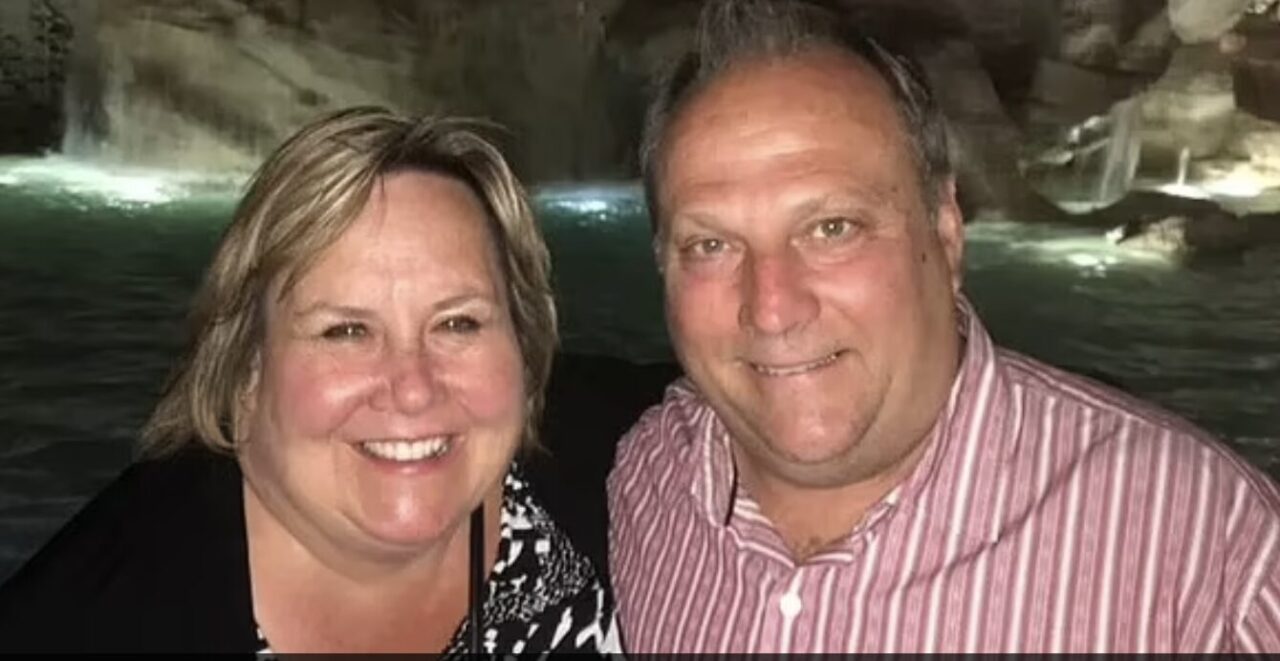

The Johnson family’s lawsuit claims negligence on the part of the resort and local tourism entities in failing to properly inform visitors about the dangers of snorkeling, particularly after long-distance travel. The lawsuit also points to a potential lack of adequate warning about the risks of ROPE, which might be more prevalent in travelers who have recently undergone long flights.
This legal action has reopened discussions on how tourism-related businesses and local authorities in Hawaii approach visitor safety. Critics argue that despite previous incidents, there needs to be more done to educate tourists about ocean safety comprehensively. This includes understanding the physical impacts of flying on the body and how it interacts with activities like snorkeling.
This Hawaii visitor snorkeling death casts a spotlight on broader issues of visitor safety in the islands.
Comments from our readers reflect a strong call for enhanced measures, such as increased lifeguard presence, better educational outreach, and more visible warning signs at popular tourist spots. While the natural beauty of Hawaii is a major draw, it should not come at the cost of visitor safety. Unfortunately, however, as we’ve witnessed ourselves countless times, visitors often don’t have good sense when it comes to snorkeling and ocean safety.
As we watch this case unfold, it stands as a stark reminder of both the critical need for proactive safety measures and better communication about Hawaii snorkeling hazards. It is a call to action for Hawaii visitors and all stakeholders in Hawaiian tourism to help prioritize the well-being of our visitors, ensuring that the islands remain a paradise not marked by preventable tragedies.
What is your take on Hawaii visitor drownings, this case, and whether the lawsuit is appropriate under these tragic circumstances?
Get Breaking Hawaii Travel News
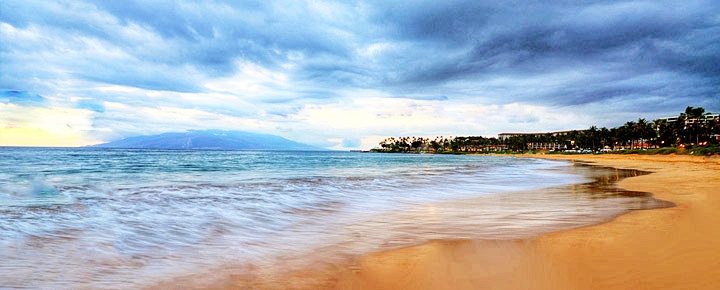
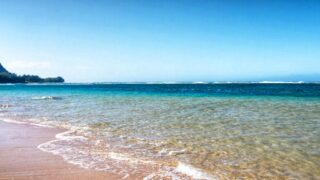
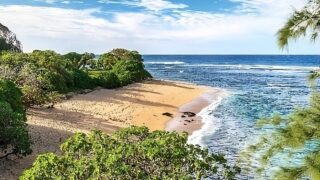
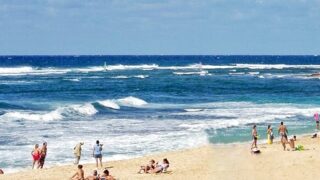
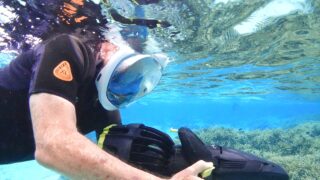
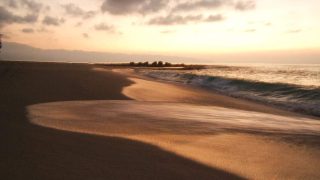
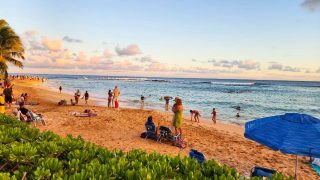
I was a flight many moons ago and will never forget a flight from HNL to ORD and a female passenger that had gone diving that morning. Over the Mainland she started feeling bad and was experiencing the bends. The airplane had to landing in Denver (the mile high city) because a decent into Chicago could have taken her life.
Look at the people that climb Haiku Stairs with no regard for their lives let alone the firemen’s lives that have to rescue them.
I have been coming to the islands for over forty years. This year is the first time I’ve ever heard about ROPE!! Why has this not been publicized better and why not years ago?? I am in my 70’s and never heard about ROPE. I don’t do a lot of snorkeling,but you’d think somewhere in the past I would have been made aware?????
I do not think it is Hawaii and the resorts responsibility to educate tourists with snorkel safety. If you are snorkeling with a company that takes you on a tour, then yes.
I do not agree with this lawsuit at all.
More and more people don’t want to take responsibility of their chosen actions. And then they are quick to sue.
It would be nice to see more life guards on more beaches.
While I feel great empathy for any loss of life, the reality is the ocean is not a controlled area. Hawaii is not a theme park constructed for safety. I’ve been aware of drownings and the circumstances because I follow news from Hawaii. Most people don’t. Posting information at tourist beaches may help, but once you choose to go in the ocean, it’s at your own risk. I do agree more of those tourism taxes should go toward more lifeguards on busy beaches.
Dear Beat of Hawaii and its readers, another ocean-related health risk for visitors and others to know about is “Surfer’s Myelopathy.” Since links are not allowed, feel free to search “PubMed” online for publications. One excerpt I found (note the “traditionally tied to first-time surfers”): “Surfer’s myelopathy (SM) is an acute syndrome identified by nontraumatic paraparesis or paraplegia. Though traditionally tied to first-time surfers, the condition encompasses any activity involving hyperextension of the back such as gymnastics, yoga, and Pilates.”
Condolences to the family for there loss, peace be with you don’t be angry towards anyone. Life is to short as it is to carry that too. Forgiveness is much better.
There was a sign we saw in Australia at the base of a trail that went up to some sea cliff. “Your safety is our concern and your responsibility”. I think that there needs to be some serious educational materials available but you have been warned.
I am seeing some great suggestions on education of visitors regarding snorkeling- however, that will only alleviate responsibility by entities. In my opinion, if you are getting your safety information on your final descent on a plane, not too many folks are going to pay attention. Half the time they are already texting their friends or making a final bathroom break or cramming their stuff back into the overhead. I can hardly understand the flight attendant announcements to prepare to land as they rapidly give instructions. I think people need to take some personal responsibility for their activities. It’s not always someone else’s fault. I feel great sympathy for the widow but a lawsuit is not always the answer.
Instead of giving people on airplanes info just on respecting the island and people there might be an opportunity to give some info on this topic as well.
One snorkel-related death/week is a lot. I’m betting most tourists have no idea about ROPE or about the recommendation to wait 72 hours after a long flight before snorkeling. Of course you can’t keep people from taking risks or ignoring advice. But we put warnings on cigarette packages and alcohol because it seems wise and kind to warn of potential danger. Why wouldn’t Hawaii post signs or somehow provide warnings (thru airlines, hotels, STRs, timeshares, etc.) about snorkeling dangers? Just seems kind to me, and not that difficult.
I’d think that with 50 deaths a year, the coroners office would do as thorough an investigation as possible. This would include finding a way of distinguishing ROPE from drowning, as well as examining the snorkel equipment and time of last trans-oceanic flight. These deaths are tragic and frequent. Relying on a small study from 2021 isn’t enough.
So would there have been a different outcome had the hotel, etc. posted warnings that said: “If you go snorkeling you might drown”? He still would’ve drowned due to his health, inexperience, flying recently, breathing in water, etc. He didn’t drown because a warning wasn’t posted. It was just a tragic accident.
Hmmmmm……. I’m a lifelong snorkeler and have never heard of ROPE before, so I appreciate this article. I definitely think rental shops should provide this information, but I’m sure others, like me, bring their own equipment. That being said, we need to take personal responsibility for knowing the risks of whatever activity we choose to do, at home or while traveling. Lifeguards at beaches can only do so much.
I am far more concerned about the dangers of full face masks.
Other issue: on-shore wave breaks. While working at a local hospital, I’ve seen an alarming number of broken necks from tourists body-surfing, then accidentally slamming their heads on the bottom. This happens in shallow water when “on-shore waves” break & slam one down, head-first. Seriously horrible results that I have personally observed doing patient-care. So many paralyzed and partially-paralyzed patients that I could write a book. And there is no cure whatsoever for spinal cord injuries. Yet not a peep of public warnings, and certainly not on the in-flight airlines “welcome to Hawaii” videos.
Hi John.
Thanks. We too have seen a significant number of injuries related to shore breaks in Hawaii. That in addition to large rocks in the ocean.
Aloha.
Our lifeguards in Kihei do warn about this repeatedly and explicitly over their loudspeaker. However, I don’t hear warnings about the parents who bring infants and toddlers into the ocean in their arms without any lifejacket protection on them. When a stray wave hits them, it can easily knock the baby out of their arms.
One winter my husband recovered 17 pairs of expensive sunglasses from the ocean bottom, each one representing a time that a strong wave overpowered someone unexpectedly. To me that demonstrates the risk dumb parents are taking with their babies.
Marcia
I do not think any parents are taking risks with their babies. That sounds pretty harsh.
If one only knows of swimming in a lake, they may think it is similar.
There are so many elements of the ocean that some cannot even imagine exist.
Where does it lead?
To new regulations & laws requiring snorkelers to pay a fee to pass a state certified online snorkeling course, you must have your snorkeling course completion card on you at all times, you’ll be required to wear a floatation device & some type of signaling device to alert individuals that you’re in distress need help.
Otherwise like anything else big Gov and Big Corp are looking to make money off this tragedy.
Wow, amazed at the callous comments suggesting nothing can be done to reduce tourist drownings. Strange way to express aloha.
Fact- Average one tourist death a week from drowning.
Fact- Lack of lifeguards, education, and safety equipment.
Fact- BOH reporting April 18, 2024 on likely political corruption.
Shame, Shame, Shame on Hawaiians.
Eddie Would Go-if only Hawaiians cared enough to demand it.
Mrs. Johnson has my sympathy and full support.
I was an ER RN on Kauai for 40 years-this tragedy is one of the many terrible tragedies. The rescue tubes on Kauai’s shores have made a difference ,thanks to Dr Downs.my daughter is a Na Pali Coast Boat Captain. She has people on her boat on oxygen,and others clearly not in good health to snorkel. She diplomatically explains the risks,but many passengers can’t even comprehend the risks.So not being callous but what can really be done to decrease visitor drownings?
Mahalo for your service but I don’t get what point you are trying to make. And “she has people on her boat on oxygen” means what? She allows clearly compromised people to snorkel from her “boat” as “captain”?
its not the airline, islands, tourism responsibility to warn you of your limitations, especially for someone who was experienced in snorkeling-he should have known himself that he should have waited 72 hours before snorkeling. This is all on him. hope the court throws the lawsuit out.
Chris:
The loss of a life is tragic, but don’t confuse what other parties “should” do, and what they are Responsible to do. If an old person is crossing a
busy street, we “should” advise them about the danger, but if they go
forward and get hurt, it’s not our Responsibility. Remember : “Sometimes something bad happens to us in life, and it’s not always
someone else’s fault. “
If people seriously examined their limitations and took personal responsibility/personally educated themselves of the risks involved ; than there would not be as many ocean/outdoor tragedies in Hawaii
Education is key! We could start by having every airline that flies out to Hawai’i make a priority announcement along with the other safety announcements they make on each and every flight.
We could, but perhaps you’ve noticed when they make the other obligatory safety announcements, not a whole lot of people are paying attention to them. Ultimately, safety is up to the individual, not someone else to blame as a scapegoat.
The dangers of scuba diving after a flight are known within the scuba community, but I am confused because when you snorkel you stay on the surface for the most part, so it surprises me that this is really a big issue.
That said people need to start taking responsibility for themselves. These people clearly are not in good shape to do any form of exercise. If he a heart attack on the treadmill in the hotel gym is that the hotels fault as well?
Just curious, where does it stop?
according to news it is the type of snorkeling gear and angle of snorkel that effects/restricts your breathing that most likely caused it
It dosen’t stop. Its same ‘ol dodging responsibility, hire an ambulance chaser.
This lawsuit should be dismissed by the court. Hawaii is not your guardian. Hawaii is not your chaperone. If you step into the ocean, You are responsible for your health and safety. It is your obligation to understand the risks — not the state, not the hotel, not the airline, not the tourism authority.
But who knew$<&$*%! that a seemingly harmless relaxing activity such as floating in still waters would cause this form of drowning. I consider myself an on high alert personality type. I would never have thought to duck duck go snorkeling dangers. 184 ROPE deaths in ten years!! Entirely too many ROPE deaths for State of Hawaii. Signs have been posted about sneaker waves and riptides for decades in California. I believe the widow will receive a settlement, and good will come, although from a tragic loss.
Yes it is a tragedy that Mr Johnson lost his life but from the looks of his excessive weight I’m sure this was a contributing factor in his death. I am sure that his medical records will be reviewed as the litigation moves forward. I can not understand the reasoning that the Fairmont Kea Lani Resort, the Hawaii Tourism Authority, and the Hawaii Visitors and Convention Bureau would be at fault in any way. People need to be responsible for their own health and the foods they wish to consume. Come on people take some responsibility for your own actions
Sounds like there should be more educational clases for snorkeling activities than Hanauma Bay.
And, probably one or more video notices as flights are close to arrival in Hawaii.
I have been to Maui 18 times and I’m ALWAYS astonished at the lack, actually No lifeguards on the beaches. It should be mandatory that part of tourism money be spent on lifeguards and beach seados that monitor the ocean fronts.
It seems the drowning deaths from snorkeling could be related to the type of snorkel used. The one piece snorkel has limited room for oxygen exchange compared to the separate mask and snorkel piece that can suck in unlimited oxygen. It’s a bad design and should be recalled.
Aloha Rob+Jeff I would recommend that snorkeling rental shops and hotels, condos, STR’s and snorkeling spots should have info told ot given to them to hear of read before they rent/go in the water. Always snorkel with another person for safety same as hiking.
It’s for this reason, (frequent drowning of visitors) that we no longer offer snorkel gear in our vacation rental.
We have laminated safety sheets on the coffee table, advising guests to always snorkel with a buddy, know your limits, take a flotation device regardless of ability and when in doubt, don’t go out.
Any drowning or loss of life while vacationing on the islands is tragic, I agree, there needs to be more education (a brief in-flight video would be great and they could also educate visitor on polite Aina etiquette at the same time)
I’m wondering if there are any stats on free diving or scuba. I have read warnings about waiting to scuba dive after a long flight.
Sad but we are all responsible for the decisions we make. Suing a public entity cost taxpayers, raises taxes and it takes much needed funds for infrastructure used by both the community and visitors. This is one case where I’d like to be on the jury.
I have gone snorkeling on either the day I arrive on Maui or the day after for over 30 years and I Never have had any problems whatsoever. And when exactly does personal responsibility come into play for one’s actions! Blaming anyone other than the man that passed is just asinine but then it only takers one land shark to bring a nonsense case like this and no matter what is said, it Is all about the money now!
Looks like more scientific evidence, an actual funded study, as to what causes ROPE, is it about long distance flying, what are underlying considerations that cause it to develop, etc., would be advisable. As for putting up signs at beaches, too often they are ignored by beach goers, unless maybe it’s about sharks. Maybe the airlines could hand out a safety flyer to passengers, just like the airlines do with the ones that take up info for the DOA and HTA. At least the visitors couldn’t say they weren’t warned.
Of course, when a visitor is only going to be in the islands for a week or so, telling them to not ‘have fun’ snorkeling for most of their visit isn’t going to go over too well!
I’m sorry for this families tragic loss but in no way believe it is the responsibility of the hotels or tourism agencies to be the visitors babysitters or educators. People make their own choices and have to deal with the consequences. Snorkeling, hiking whatever the choice, do your own research and proceed at your own peril. How many people go to ABC stores and buy snorkels, masks and fins, will they be sued for a drowning because they sold the items? How much has it cost the state for rescuing lost and hurt hikers. The state need to start suing or at least charging for these search and rescues.
Another frivolous lawsuit that should never see the light of day
Could it be the rise in heart related drownings in the last couple of years be because the Covid vaccine has a known heart issue side effect??
The history of snorkeling deaths due to ROPE is at least 25 years now, many also occurring in Australia and prompting research. The covid vaccine hasn’t been around for that long.
I think it has more to do with the sheer number of people who are doing an activity in deep water they aren’t used to…and many of them are not physically fit.
There is another concern not mentioned. The fact whether these deaths via snorkeling have anything to do with vaccination status. The CDCs recent VSafe show an increase in strokes, heart ailments, turbo cancer and Pulmonary embolism, as the clotting issues are different now versus pre 2021 (pre vaccination) One only needs to search mortician reports of late to discover an underlying threat to the well being of those with massive abnormal blood clots. 🙏🏼 Unvaccinated most recently are showing to a lesser degree blood clot issues, as well. Therefore, It’s best to rule this out for anyone concerned about health and well being. 🙏🏼
Again, the incidents of snorkeling deaths due to ROPE are now into the decades. The covid vaccine hasn’t been around that long. The Aussies have been studying this for many years.
It’s not the vaccine!
Well, I can say that we’ve travelled to Hawaii 10 times since 2010 and today was the first time I’d heard of ROPE. This is also as a 28 year career firefighter/EMT, though snorkeling is not much of an activity on the coast of Maine. Flash Pulmonary Edema is a well known condition that appears to be very similar, if not the same event, though the post flight snorkeling appears to be a newly identified risk factor. I would think it will be extremely likely to prove that this was a primary cause vs. just cardiac stress, which can be elevated when persons less comfortable or physically fit enter the water for any reason.
I understand this was a tragedy for the Johnson family, and very unfortunate that it happened. However, I believe that there is no such thing as absolute safety in life. Living in an area with very large/tall trees as we do in PA is a danger, as the tree can be felled by strong winds and fall on the house, killing the occupant(s). But, the beauty of the forest is worth it. Driving a car to work has a danger, but it is usually worth the danger. Etc. etc.. Snorkeling is a wonderful activity when visiting Hawaii, and my wife and I’ve enjoyed it often. I am not a good swimmer, and I always wore a ski belt to make it a safer sport activity. I don’t see the basis for a lawsuit.
Did they mention what type of mask he was wearing?
Also interested in that… Seems to be many elevated risks utilizing the full face masks, though they don’t appear to be the single issue.